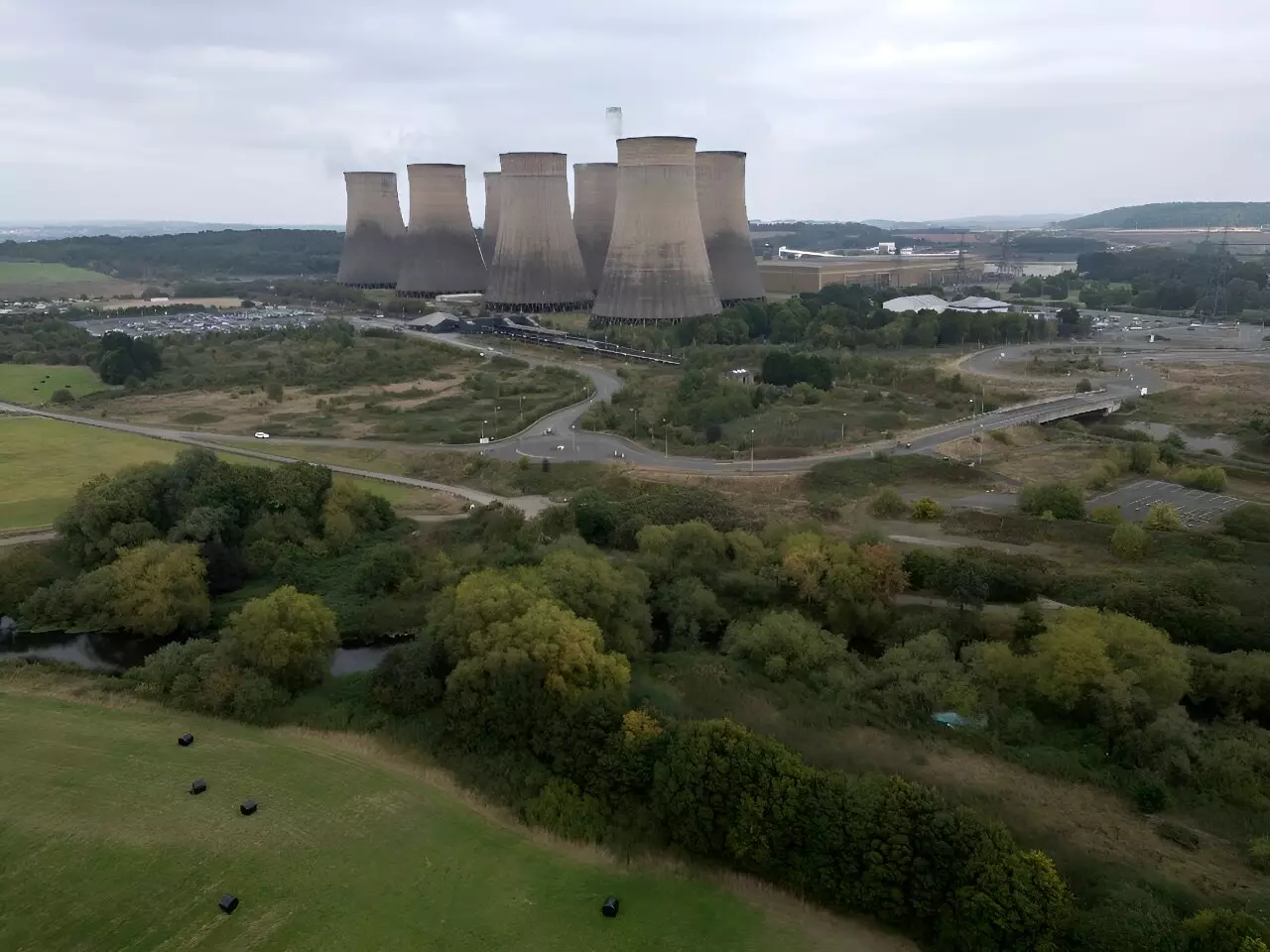The impending closure of the UK’s last coal-fired power station, Ratcliffe-on-Soar, heralds a significant moment in the country’s energy history. Scheduled for Monday, this closure makes the United Kingdom the first member of the G7 to completely abandon coal as a source of electricity generation. The shift illustrates a broader commitment to environmental sustainability, as the nation aims for a decarbonized electricity system by 2030 and a carbon-neutral economy by 2050. This action is more than just a regulatory milestone; it symbolizes a cultural and economic pivot towards cleaner energy practices and technologies.
For nearly six decades, Ratcliffe-on-Soar has loomed large in the central England landscape, not only as a vital power source during the Industrial Revolution but also as a testament to Britain’s historic reliance on fossil fuels. The closure marks the end of a coal-based era that began with the establishment of the first coal-fired power station in London in 1882. The plant at Ratcliffe-on-Soar became part of the lifeblood of the UK’s energy framework, contributing up to 70 percent of the electricity mix as late as the 1980s. However, this chapter is closing as societal values shift towards sustainability and environmental responsibility.
The decommissioning of Ratcliffe-on-Soar will initiate a two-year process, impacting approximately 350 employees and contractors. As Uniper, the plant’s owner, prepares for its transition, workers will be offered options for redeployment within the company or enter redundancy programs by the end of 2026. Such shifts underscore the complexities that arise during major transitions in energy policy, wherein the economic ramifications extend beyond mere energy production to encompass the livelihoods of workers and their families.
Yet, this closure is also framed as an opportunity. Energy Minister Michael Shanks has indicated a hopeful future filled with “good energy jobs,” suggesting that while coal may be exiting the stage, new roles related to renewable energy technologies are emerging. This transition is vital as the UK seeks to ensure that economic growth occurs alongside environmental progress.
As Britain embarks on this monumental transition, it sets a benchmark for other G7 nations. With countries like Italy, France, and Canada establishing their own timelines to phase out coal, the pressure mounts for other major economies to follow suit. However, nations such as Japan and the United States remain indecisive, lacking set dates for the relinquishment of coal power. The UK’s proactive approach could serve as a catalyst for global change, emphasizing the urgent need for coordinated efforts to combat climate change.
Doug Parr, policy director at Greenpeace UK, aptly summarizes this sentiment: the UK’s example offers a roadmap for the international community, underscoring the necessity of moving beyond coal and advancing towards renewable alternatives as stipulated during COP28 agreements.
With coal’s departure, the UK’s energy landscape is undergoing a profound transformation. Currently, natural gas constitutes a significant portion of the electricity mix, accounting for about one-third, while wind power comes in at approximately 25 percent, and nuclear power contributes 13 percent. As the new Labour government rolls out its green energy strategies, the focus is shifting towards maximizing the potential for renewables. The establishment of a publicly owned body dedicated to investing in offshore wind, tidal, and nuclear energy demonstrates a commitment to reinvigorating Britain’s energy infrastructure.
Moreover, the lessons learnt from coal’s historical prominence should guide future efforts. The campaign to develop renewable energy is not merely about replacing an old energy source; it is about innovating and improving efficiency in energy production to meet the growing demands of a modern society.
As the final doors of Ratcliffe-on-Soar close, they do not signify just an end but signify a new beginning—a commitment to sustainable energy that promises environmental integrity and economic revitalization. The journey ahead will not be without challenges, as hurdles remain in phasing out other fossil fuels like oil and gas. However, the ongoing commitment to renewable energy development presents a resilient path forward. The shift towards a clean energy future stands as a testimony to what can be accomplished when a nation collectively embraces change for the betterment of the planet.


Leave a Reply